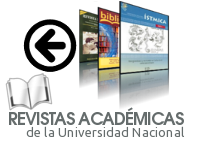Playgrounds: Safe designs and infrastructures for our children… an urgent matter in Costa Rica
DOI:
https://doi.org/10.15359/mhs.4-1.2Keywords:
Playgrounds, regulations, design, infrastructures, safetyAbstract
The purpose of this article is to offer the design and infrastructure parameters necessary to have safe playgrounds since they represent a unique opportunity to foster an integral development, particularly in children. In these public places, children learn to resolve conflicts to continue playing, having fun, and developing. These recreational areas then become learning places that foster the formation process and provide great social, emotional, physical, cognitive, intellectual, and spiritual benefits. However, such benefits are diminished by the lack of interest of the communities and the adult population to optimize playground conditions and by unscrupulous developers, who design playgrounds in inappropriate places putting the population at risk. Therefore, the following must be taken seriously into consideration before, during, and after the construction of a playground: design, construction, materials, equipment, components and the procedures to meet the necessary safety requirements and the objective for which they were created, that being an area designed, equipped, and located exclusively for playing that facilitates the integral development of the population. Consequently, it is urgent for Costa Rica to enact clear regulations that guarantee the construction, design, and use of playgrounds that do not put the population’s health at risk, prevent accidents, and guarantee the inalienable rights of each Costa Rican.References
ACIC, Y., Gulbayrak, C., & Turaci, G. (2004, febrero). Investigation of the level of safety and appropriateness of playgrounds in Elazing city in Turkey. International Journal Environ Health Resistence, 14(1), 75-82. Obtenido el 10 de febrero del 2005, de: http://www.ncbi.nlm.nih.gov/entrez/qu er y.fcgi?cmd=pubmed&dopt=Abstract&list_uids=14660120
Bengtsson, A. (1970). Parques y campos de juego para niños. Barcelona: LABOR.
Booth, N. (1988, October). Playgrounds: Safety and fun by design. Parks & Recreation. 29-32.
Burton, E. (1977). The new physical education for elementary school children. Boston: Houghton Mifflin.
Butler, G. (1966). Principios y métodos de recreación para la comunidad. Volumen 1. Argentina: Bibliográfica OMEGA.
Declaración Universal de los Derechos Humanos. (1948, 10 de diciembre). Obtenido el 17 de mayo del
de, http://www.unhchr/udhr/lang/spn.htm.
Fondo de Población de las Naciones Unidas (UNFPA) y el Consejo de la Persona Joven. (2002). Ley No. 8261 General de la Persona Joven. Costa Rica: Lara Segura & Asoc.
Hudson, S.D., Thompon, D., & Olsen, H. (2004). How safe are our playgrounds? Park & Recreation, 39(4), 53-59.
Hudson, S. D., Mack, M., & Thompson, D. (2000). Play is safe. Steps to keeping playground surfacing safe for our children. Parks and Recreation. 35(4), 78-85.
Lépiz, O. y Jiménez S. (2000). Una Oportunidad para la Igualdad: Comentario a la Ley 7600 sobre la Igualdad de Oportunidades para las personas con discapacidad. Costa Rica: Gossestra Intl.S.A.
Ley No.4240 Planificación Urbana. (1978, 15 de noviembre). Obtenido el 14 de mayo del 2005, de: http://asamblea.racsa.co.cr/ley/leyes_nombre.htm
Lillis, K., & Jaffe, D. (1997, abril). Playground injuries in children. Pediatric Emergency Care, 13(2), 149-153. Obtenido el 12 de febrero del 2005, de: http://www.ncbi.nlm.nih.gov/entrez/query.fcgi?cmd=Retrieve& db+pudmed&dopt=Abstract&list_uids=9127428
López, M. y Estapé, E. (2002, Octubre). La zona de juegos, un espacio para la educación física en los centros escolares. Revista Digital Efdeportes, Buenos Aires, 53(8). Obtenido el 3 de febrero del 2005, de: http://efdeportes.com/.
Lorente, M., Pavía, V., Quinteros, N. y Verbic, F. (2002, agosto). El derecho al juego. Revista DigitalEfdeportes, Buenos Aires, 51(8). Obtenido el 3 de febrero del 2005, de: http://efdeportes.com/efd 51/juego.htm
Morera, M., León, A., y Camacho J. (2005). Análisis de la legislación de Asociaciones, Fundaciones, Parques Nacionales, Recreativos y Campos de Juego en Costa Rica. Curso PF-4905 Recreación y su Legislación, Maestría en Recreación, Universidad de Costa Rica.
O’Brien, E. (1998). Playground safety: It is everybody is responsability. Parks and Recreation, 33(4), 2.
Pavia, V. (1997, junio). El proyecto sobre las formas cotidianas de juego infantil. Revista Digital Efdeportes, Educación Física y Deportes, 5(2). Obtenido el 10 de febrero del 2005., De:http://www.Efd eportes.com/efd5/vp5.htm
Petrido, E., Silbert, J., Dedoukou, X., Skalkidis, I., & Trichopoulos, D. (2002). Injuries in public and private playgrounds: the relative contribution of structural, equipment and human factors. Revista Digital PudMed, 91(6), 691-697. https://doi.org/10.1111/j.1651-2227.2002.tb03304.x
Rico, C. (2002, 22-25 junio). Ponencia presentada en el Panel “El espacio público como generador de usos alternativos para la convivencia ciudadana en torno a la Recreación” dentro del III Foro Internacional de Parques realizado entre 22 y 25 de junio 2002, Bogotá. Obtenido el 3 de febrero del 2005, de: http://www.redcreación.org/articulos/espaciopublico_espacioludico.html
Stillwell, J. (1981). Leisure and Recreation Concepts, a Critical Analysis. Boston: Ally and Bacon, Inc.
Stillwell, J. (1987). Making and Using Creative Play Equipment. USA: Human Kinestics Publishers.
Villegas, J. (2005, 30 enero). Áreas de recreo están en zonas de riesgo. La nación, pp. 5A. UNICEF y Defensoría de los Habitantes. (1998). Código de la Niñez y la Adolescencia. Costa Rica: UNICEF. http://www.outdoorfunstore.com/playground-history.asp.
Downloads
Published
How to Cite
Issue
Section
License
General conditions
MHSalud: Journal in Human Movement Sciences and Health by the Universidad Nacional is cover under a Creative Commons Atribución-NoComercial-SinDerivadas 3.0 Costa Rica license.
The journal is hosted in open access repositories such as the Institutional Repository of the Universidad Nacional, the Kimuk Repository of Costa Rica and La Referencia.
The editorial source of the journal must be recognized. Use the doi identifier for this purpose.
Self-archiving policy: The journal allows the self-archiving of the articles in their peer-reviewed version, edited and approved by the Editorial Board of the Journal to be available in Open Access through the Internet. More information in the following link: https://v2.sherpa.ac.uk/id/publication/25815



















